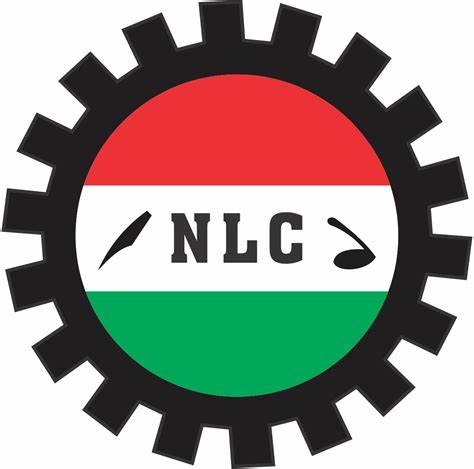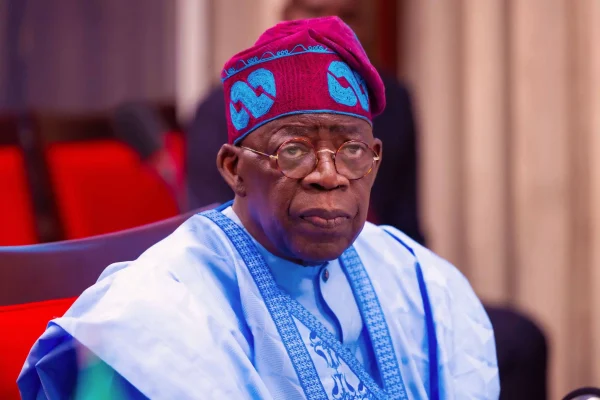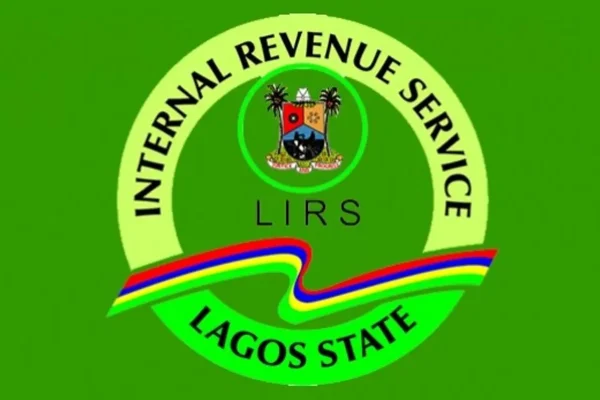- 2023 Elections: PDP, APC trade accusations over Tinubu, Atiku’s manifestos
- Nigeria to revive trade relations with Russia
- US, UK warns citizens of possible terror attacks in Nigeria’s capital
- Kerosene price soars by 118%, fuels anxiety
- 542 stranded Nigerians return from UAE
Across Nigeria’s 36 states and the Federal Capital Territory, these are the five top Nigerian news stories you shouldn’t miss:
2023 Elections: PDP, APC trade accusations over Tinubu, Atiku’s manifestos
On Sunday, the All Progressives Congress and the Peoples Democratic Party engaged in verbal combat over the platforms of Atiku Abubakar and Bola Tinubu, the two parties’ respective presidential candidates.
The APC presidential candidate criticized Atiku, saying he would not be a part-time president who “would spend 50% of his time managing the country from Dubai,” while the PDP urged the ruling party and its candidate to explain how they intended to do away with subsidies without hurting Nigerians.
In his manifesto, which was released in Abuja on Friday, the former governor of Lagos State pledged to completely deregulate the downstream, raising concerns that this might result in higher fuel costs and inflation.
Major General Muhammadu Buhari’s (ret.) administration has been providing subsidies since 2015, and it has also included N3.6 trillion in the budget for 2023 to cover the cost of fuel subsidies for the first half of that year.
The PDP Presidential Campaign Council’s spokesman, Daniel Bwala, said the ruling party and its candidate should clarify how they intended to deregulate the downstream sector without causing inflation and misery on the populace in response to questions on Sunday.
“The APC and their nominee must make clear how they plan to do this. They have an obligation to offer this clarity, he said.
Kola Ologbondiyan, a different spokesman, pressed Tinubu to change from general to specific solution-based models on how he intended to repair the troubled oil sector, emphasizing that Tinubu’s plan did not address whether he would raise the price per liter of PMS or privatize the sector to achieve his objective.
He continued, “Atiku Abubakar has pledged a phased withdrawal of subsidy in a way that will not put excessive pressure on the economic life of Nigerians.”
The PDP standard bearer, Atiku, urged Nigerians in a statement on Sunday to hold the APC accountable for their failure, saying that the 2023 election will serve as a referendum on the APC’s performance.
The former vice president wrote in a newsletter, “The ruling party would seek to run away from their terrible performance. In reality, they will want us to concentrate on issues unrelated to the next election. We won’t, however, grant them that advantage.
“We’ll make sure they live up to their scorecards. But even that is insufficient. Making sure we don’t make the same error again is more crucial. Because of this, it is our responsibility to assess each political party’s plans and use them as the basis for our voting choices.”
Nigeria to revive trade relations with Russia
Mr. Abdullahi Shehu, Nigeria’s ambassador to the Russian Federation, has reaffirmed his country’s commitment to reviving trading ties with Russia.
In an interview with the News Agency of Nigeria (NAN) on Sunday in Moscow, Shehu made the declaration and pledged to make sure that Nigeria supplied more items to Russia.
In order to facilitate and strengthen economic links between Russia and Nigeria, he said one of his responsibilities since taking office as the highest representative of Nigeria to Russia has been to interact with companies and investors there.
Shehu bemoaned the low level of trade between Nigeria and Russia, claiming that after the coronavirus outbreak in 2020, trade between the two nations further declined.
The ambassador claimed that in order to address the issue of low trade, he would need to decide which sectors of the Nigerian economy to concentrate on in order to maintain trade equilibrium and boost exports from Nigeria to Russia.
“We have had robust trade relations with Russia. At a time, our volume of trade with the Russian Federation was highest, especially when the trading was more in the area of arms sales to Nigeria.
“Not long ago, some military hardware were purchased from Russia and the volume of trade became relatively high.
“On their part, Russia exported manufactured and industrial products to Nigeria. On our part, our comparative advantage is to export unprocessed commodities to Russia.
“But we have to make these commodities to be competitive in the international market and with other options that the Russian market is looking up to from us to export to Russia.
“This is what we are building on but as it is now, the volume of trade is relatively low and compounded by the COVID-19 pandemic.
“When I assumed duty here last year, my intention was that after the coronavirus pandemic, we needed to increase the volume of trade.
Shehu said that he had started making contacts with relevant private sector organisations, including the Russian Chambers of Commerce so that Nigeria could identify areas of comparative advantage, to boost its trade with Russia.
“But unfortunately, with the current crisis in Ukraine every attention is focused on the crisis and the development has affected trade between Russia and Nigeria.
“You know that Nigeria use to import a lot of fertilizers and grains from Russia and Ukraine and we hope that this situation will soon come to an end so that we can continue our economic relations with Russia.
Asked if Russia would support Nigeria’s current fight against insecurity, Shehu said that “Russia holds strongly to its policy of non-interference but that it will be willing to assist Nigeria on Nigeria’s request.
US, UK warns citizens of possible terror attacks in Nigeria’s capital
The governments of the US and UK have alerted their nationals to the possibility of terrorist strikes in Nigeria, notably in Abuja, the nation’s capital.
There is “an heightened danger of terror strikes in Nigeria, notably in Abuja,” according to a security advisory from the US embassy in Nigeria.
The targets might be government buildings, houses of worship, schools, markets, shopping centers, hotels, bars, restaurants, sporting events, transportation hubs, law enforcement institutions, and international organizations, according to the embassy.
The US embassy stated that, as a result, it will provide fewer services up until further notice.
It cautioned Americans traveling to or moving through Nigeria to stay vigilant, avoid crowds, and adhere to local news and security authorities’ recommendations.
It also suggested that Americans travel to Nigeria with updated personal security plans, fully charged cell phones for emergencies, and valid identification.
The British High Commission in Nigeria put out a warning that is similar to the one the US put out.
“Terrorist attacks are becoming more likely in Abuja. The UK advisory advises people to “be vigilant, use caution while moving about, pay attention to local news, and heed security officials’ recommendations.”
The advisories were published on the websites of each embassy.
The most recent warnings come around a week after the Australian embassy warned its citizens against visiting Nigeria.
According to reports, the Australian embassy issued a travel warning on Wednesday, citing various causes including flooding, terrorism, and kidnapping.
As of the time of this publication, the Nigerian government had not responded to the advice. However, a senior security official assured journalists that the security services were “on top of the situation” and guarding against any terrorist attacks in the capital of Nigeria.
Kerosene price soars by 118%, fuels anxiety

Poor Nigerians may no longer be able to afford household kerosene due to the commodity’s price increase of 118% over the previous year.
The average retail price per litre of the product increased by 118% to N947 from N434 in September 2021, according to the Nigerian Bureau of Statistics’ National Household Kerosene report for September.
The average retail price for a litre of HHK that customers paid in September 2022 was N947, up 17% from the N809 price reported in August 2022, according to the research.
According to a breakdown of the data, Enugu had the highest average price per liter in September 2022, with N1,272, followed by Ebonyi and Cross River, both with N1,264.
In contrast, Rivers had the lowest price at N686, followed by Bayelsa at N715 and Nasarawa at N735.
Additionally, analysis by zone revealed that the North-West had the lowest average retail price per liter of the product at N869, while the South-East had the highest at N1,128.
According to a research on state profile analysis, Abuja had the highest average retail price per gallon of cooking kerosene at N4,200, followed by Abia and Enugu at N4,078 and N4,052, respectively.
The lowest price was recorded in Borno, though, at N2,500. Zamfara and Delta were next, with N2,555 and N2,577, respectively.
The South-East had the highest average retail price per gallon of the product, with N3,607, followed by the South-West, with N3,468, and the North-East, with N2,804, according to zone analysis.
The price of cooking kerosene per gallon increased to N790 in July from N761.69 in June, a 3.68 percent rise.
The Nigeria National Petroleum Firm Limited, the country’s state oil company, has stopped importing the good, forcing independent retailers to keep raising their prices.
More than 70% of Nigeria’s 200 million people, according to Group Chief Executive Officer of NNPC Ltd. Mele Kyari, lack access to clean cooking fuels. The cost of cooking gas has also increased dramatically.
In response to an exclusive report by The PUNCH, Oladapo Olatunbosun, national president of the Nigerian Association of Liquefied Petroleum Gas Marketers, revealed that gas consumption had drastically decreased to 800,000 metric tonnes per year from 1, 250 million MT per year recorded about four months ago.
He claimed that Nigeria should use at least six million MT annually given its enormous population.
The current consumption rate in Nigeria is 800,000MT annually. We were producing 1,250 million MT annually just a few months ago.
We should typically utilize roughly six million MT annually, just like other African nations like Morocco, Egypt, Algeria, Kenya, South Africa, and other nations, given the population of our country. But despite Nigeria’s enormous population, these nations currently consume more LPG than we do,” he remarked.
In the meantime, financial and economic experts have encouraged the government to get involved in order to lessen the difficulties Nigerians are facing.
Dr. Muda Yusuf, a former director general of the Lagos Chamber of Commerce and Industry, stated that the government’s action is urgently required to lower the cost of the good for the benefit of the underprivileged masses.
He declared, “The country’s poverty situation will worsen due to the huge increase in the price of cooking kerosene. Kerosene for household use is a necessity, not a luxury. We already have a problem with excessive food inflation; now we have to deal with the rising cost of the equipment used to prepare the food. Therefore, this is an additional burden on the typical Nigerian and the poor, and it will undoubtedly have a significant influence on poverty.
542 stranded Nigerians return from UAE
542 stranded Nigerians have arrived at the National Emergency Management Agency (NEMA) from the United Arab Emirates (UAE).
In a statement released on Sunday in Abuja, Manzo Ezekiel, the head of NEMA’s press office, verified this.
He claims that the travelers returned at 4:29 a.m. on a Max Air chartered flight and arrived at the Nnamdi Azikiwe International Airport in Abuja.
The returnees, he continued, included 460 women, three newborns, and 79 men.
He noted that before receiving a token from NEMA to help with their transportation to their destinations, the returnees were screened by health experts, profiled by several relevant agencies, and cleared by the Nigerian Immigration Service.
Prior to officially receiving the returnees on behalf of the federal government, Mustapha Ahmed, Director-General of NEMA, urged them to draw lessons from their experiences and live up to the law.
In addition, the federal government had approved the evacuation and the giving of the token to enable their transportation back to their respective homes, said Mr. Ahmed, who was represented by the agency’s Director of Finance and Account, Sani Jiba.
Atinuke Mohammed, the Nigerian consul general in Dubai, who accompanied the refugees on their journey home, expressed his gratitude to the federal government for its exceptional assistance in ensuring the citizens’ safe evacuation.
The National Commission for Refugees and Internally Displaced Persons (NCFRMI), NAPTIP, NIDCOM, NDLEA, Nigerian Correctional Service, Nigerian Customs Service, NCDC, Port Health Services, among others, all sent representatives to welcome the returnees.

















